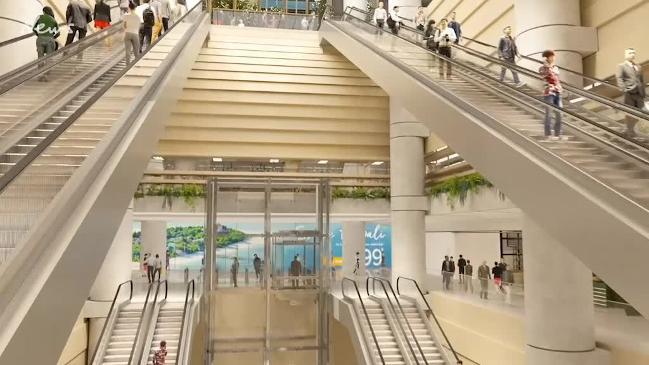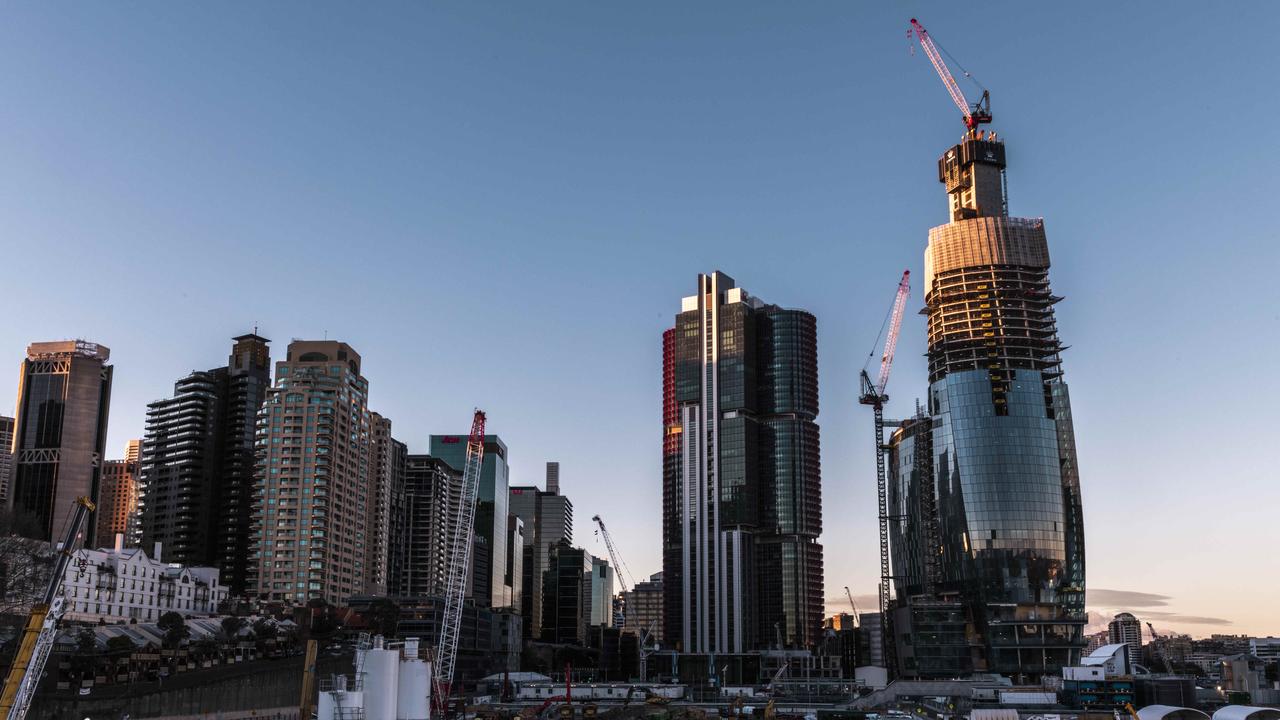Simplifying building approvals can unlock Sydney’s potential
Sydney is the worst city in Australia to do business, with local councils taking up to 600 days to approve major development applications. FIND OUT HOW LONG A DA TAKES TO BE APPROVED IN YOUR AREA.

- Sydney’s housing future: Most people will live in small units
- Lib: Sydney’s full and there is too much development
SYDNEY’S destiny as a global city of big ideas is under serious threat because developments are paralysed by a quagmire of paperwork, regulation and delays that add millions of dollars to the final cost.
It is the worst city in Australia to do business, with local councils taking up to 600 days to approve major development applications, senior planners have said.

MORE BRADFIELD:
Seven shocking examples of red tape in Sydney
Why The Block team won’t film in Sydney
Our shining jewel is in need of a little polish
Chris Johnson: Let’s be a true world city
Over the next 12 days, The Daily Telegraph will examine the big issues that will determine the shape and future of Sydney, drawing on the spirit of John Bradfield to inspire politicians, industry figures, academics and ordinary Sydneysiders to think about what they want their city to be.
One of the major challenges holding the Harbour City back is the stranglehold of red tape slowing development.
For example, despite a building and infrastructure boom in NSW, Sydney major developments can take up to four years to get off the ground compared to north of the border where projects take just a few months in Queensland.
“It is easy to do business there as we know they will stick by their word and they support development,” said Harry Triguboff, the higher-density housing pioneer and founder of Meriton whose vision has changed the landscape of Australia’s cities.
“They know that development means income for their government and jobs for their people.
“In NSW, it is the opposite but it could be so much better if they made the system more efficient, consistent and removed excessive costs.”
Planners and developers agree Sydney is on the verge of greatness as an international city, but that over-regulation is killing the golden future it could have.
A single project requires 90 or more reports. But former Reserve Bank governor Glenn Stevens said councils that fail to meet housing supply targets appeared to face no penalties.
And red tape ramps up costs. A two-bedroom unit in NSW costs $150,000 more than one in Victoria because regulations require the Sydney property to be 10 sqm larger, Urban Taskforce Australia research found.

Restrictive zoning rules add $489,000 to the cost of the average Sydney home and $399,000 to the cost of an apartment, according to RBA data.
As an example of the red tape tangle, property group Austino is still trying to get approval for a 650-apartment project at Epping four years after lodging its application with the Department of Planning and Environment’s “accelerated rezoning unit”.
Planning manager Kerry Keogh said the delays were adding “millions” of dollars to the project’s cost.
Urban Taskforce boss Chris Johnson said Sydney’s planning system was a “mess”.
“The real action has been delegated to councils who are overly influenced by anti-development groups and so they go slow. A good example is Canterbury-Bankstown where the Planning Panel averages 600 days to make a decision,” he said.

Mr Johnson said Sydney had “far too many rules and guidelines that councils treat as tick-the-box requirements.
“The result is that a developer must not try anything different or another year could be added to the approval time. Regulation wins over innovation in building design every time.”
Even building a single house can require up to 25 specialist reports “so the council planners don’t have to take any responsibility”, he said.

The underfunded Land and Environment Court is clogged, with appeals increasing by 97 per cent in the past four years.
In the 1980s, the consent form for a commercial office building was just three pages long. Today, development applications can be 160 pages — plus supporting documents.
The Council of Small Business Organisations said at least eight red tape-busting task forces have been formed over recent decades but failed to improve things.
The Institute of Public Affairs estimates the cost of red tape nationally at $176 billion a year.
Businessman Gerry Harvey said red tape is also killing entrepreneurialism.
“There are more regulations and more rules — we are over-governed and it is overkill,” he said.
Official data shows the average assessment time for a major DA is 600 days in Canterbury-Bankstown, 562 days in Cumberland, 481 days in Hornsby, 386 days in Blacktown and 354 days in Fairfield.
Foley to backflip on roads
A NSW Labor government would green light the $7.2 billion final stage of WestConnex — a project it has previously panned — because it is “past the point of no return”.
The Daily Telegraph understands Opposition Leader Luke Foley will today commit to finishing Australia’s largest transport project when he unveils his priorities in the portfolio for western and southern Sydney.
But a Labor insider said the party wants to move away from toll roads, with Mr Foley set to announce a multibillion-dollar fund for new public transport projects.

The final stage of WestConnex involves building twin 7.5km tunnels between Haberfield and St Peters to link the M4 and M5 motorways, and an underground interchange at Rozelle.
“Stage three of WestConnex has gone past the point of no return — to cancel the contract would cost billions,” a Labor source said.
“Labor will proceed with the Rozelle interchange but review the design to get it right.”
In his budget reply speech in June, Mr Foley vowed to hold a judicial inquiry into WestConnex and the troubled CBD light rail project if elected.
Stuck in the past
Sydney’s standing as Australia’s global city is at risk because planners are looking to the past instead of the future, says Urban Taskforce chief Chris Johnson.

“Sydney is at the threshold of greatness as a global city,” Mr Johnson writes for the launch of the Bradfield Oration project.
“We could have a major impact on the rest of the world … but a growing anti-development attitude could move us down.”



